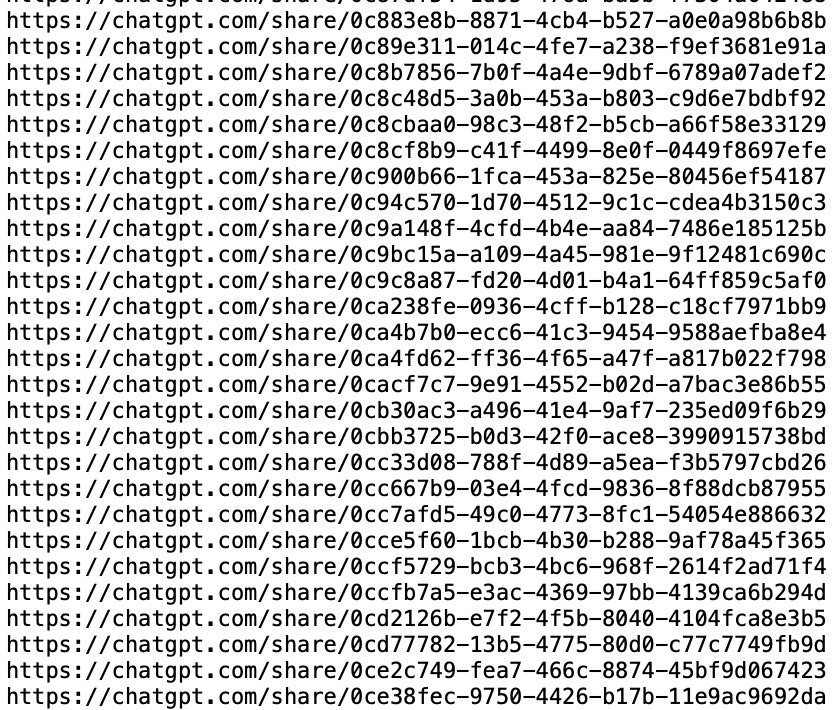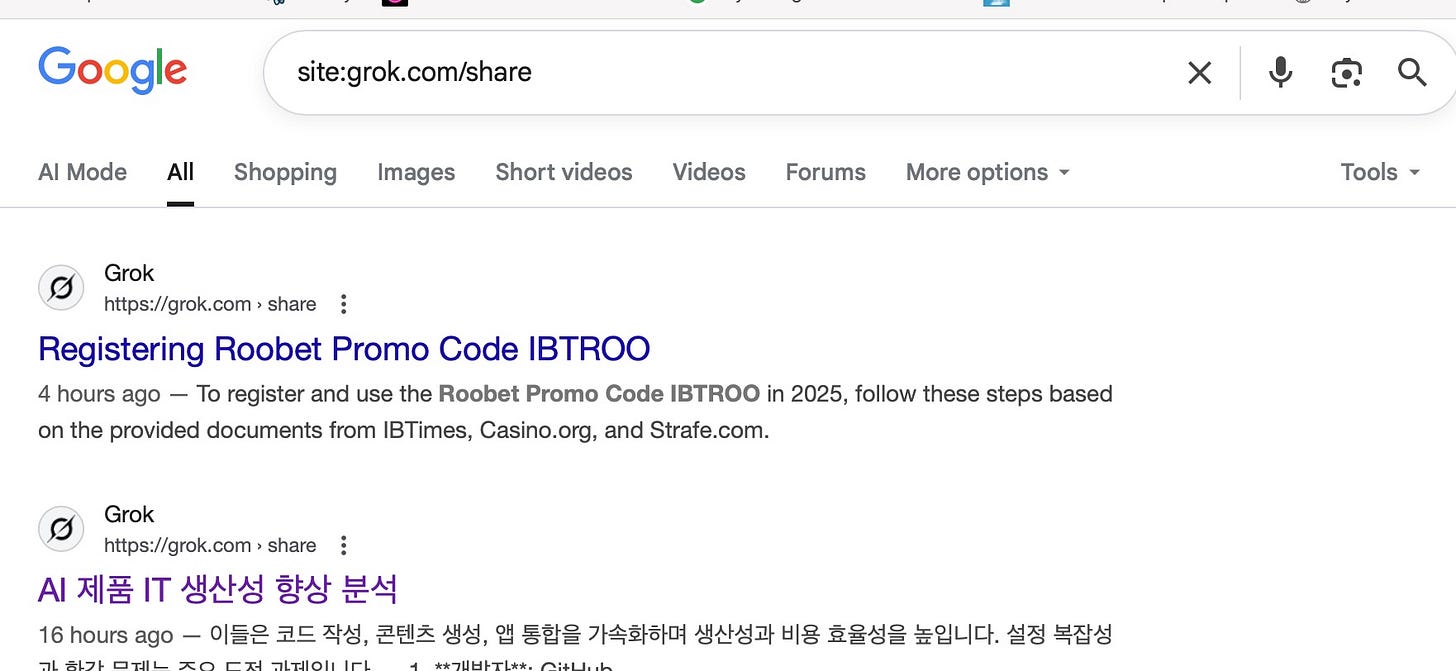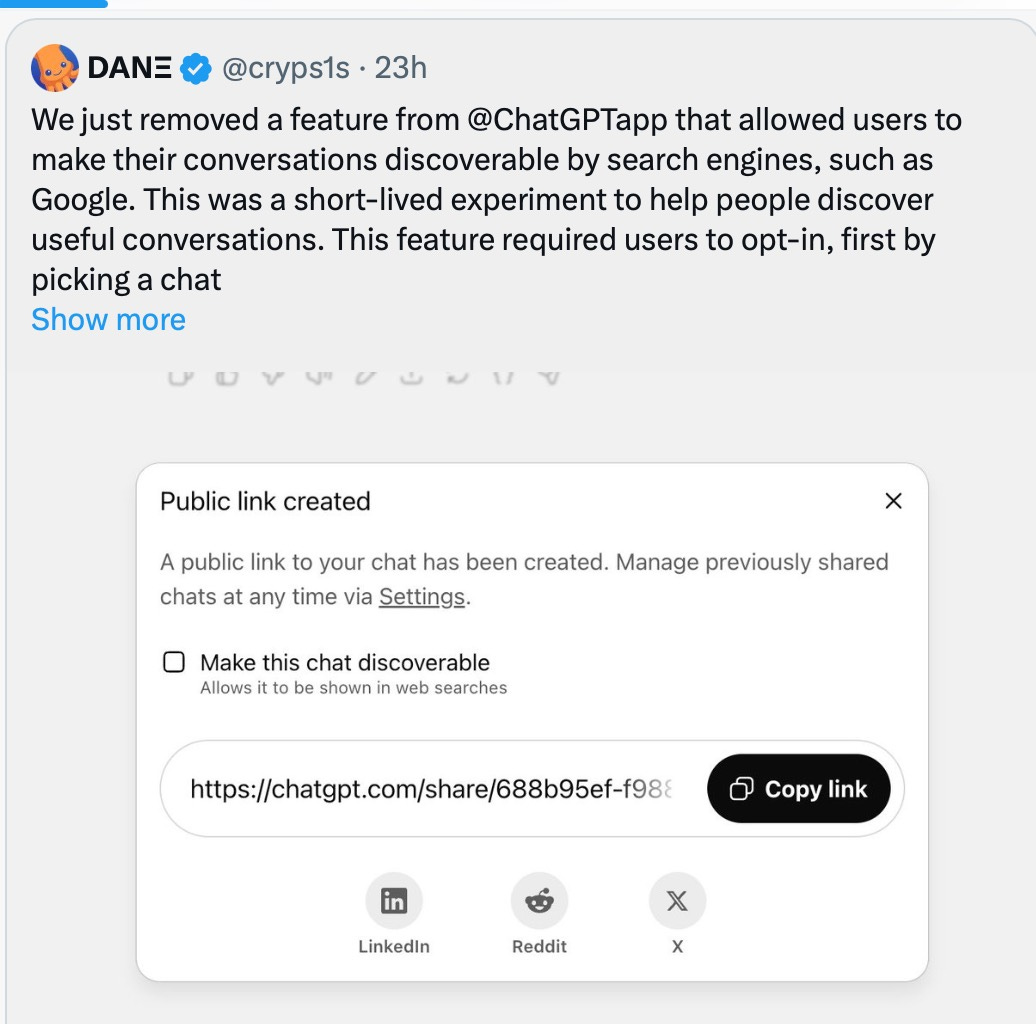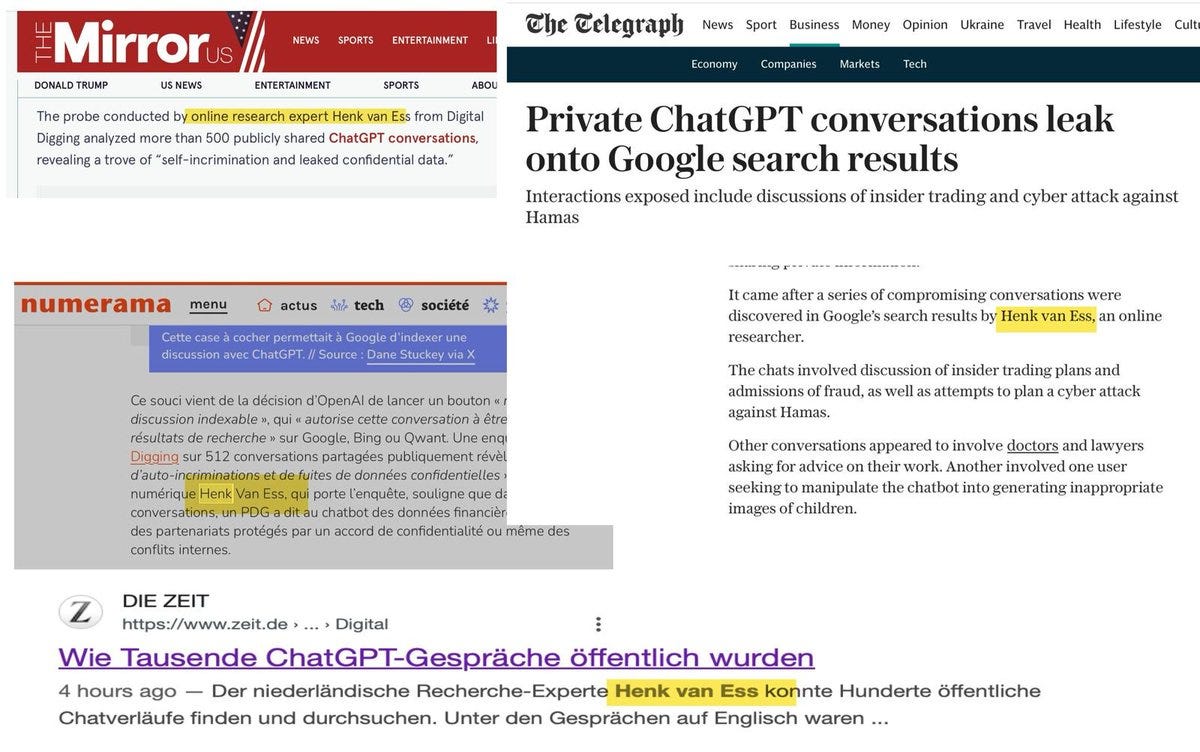ChatGPT Confessions gone? They are not !
OpenAI closes gap, but another opens of 110.000 chats
ChatGPT scrubbed today nearly 50,000 shared conversations from Google's index after our article. They thought they'd solved the problem. But did they?
A new Digital Digging investigation, here is the first one, conducted with Belgian researcher Nicolas Deleur, has uncovered 110,000 ChatGPT conversations preserved via Archive.org's Wayback Machine. When users click "share" on a ChatGPT conversation, they think they're creating a temporary link for a friend or colleague. What they don't realize is they were also creating a permanent, searchable record of their thoughts, confessions, and sometimes illegal activities seen by Archive.org.
I asked the director of the Wayback Machine, Mark Graham, to comment. Graham: “I can/will tell you we have not gotten, or honored any requests for (large scale) URL exclusion of "chatgpt.com/share" URLs. If OpenAI, the rights holder for material from the domain chatgpt.com, asked for the exclusion of URLs from the URL pattern chatgpt.com we would probably honor that request. However, they have not made such a request”
As we speak, also the chats of Grok are still visible in Google via site:grok.com/share but they are quickly removed.
While OpenAI scrambled to de-index conversations from Google today, they forgot the internet's most basic rule—nothing truly disappears.
Over 100.000 ChatGPT chats are still in Archive.org, although with a twist. The chats aren't just links or fragments. They're complete conversations, frozen in time, containing similar “confessions” we exposed yesterday. Users shared these chats publicly - not by default, but only by clicking Share.
Among the freshly uncovered conversations, patterns emerge from our original findings. Most of the shared chats are harmless, but some of them are not. Here are three examples from the archive.org database (see note below why we don’t mention names):
The Amazon Land Grab Strategy
In one particularly damning conversation, an Italian-speaking lawyer for a multinational energy corporation laid bare their strategy to displace indigenous Amazonian communities. The user introduced themselves saying: "I am the lawyer for a multinational group active in the energy sector that intends to displace a small Amazonian indigenous community from their territories in order to build a dam and a hydroelectric plant."
The conversation revealed plans for a 15,000MW hydroelectric facility, with the lawyer explicitly asking: "How can we get the lowest possible price in negotiations with these indigenous people?" They acknowledged that indigenous people "don't know the monetary value of land and have no idea how the market works"—essentially admitting their intent to exploit this knowledge gap for corporate gain.
Political Dissent in Authoritarian Regimes
Another conversation showed someone in an Arabic-speaking country asking ChatGPT to write a story about how their president "قام السيسي ب نكح الشعب المصري" (roughly: "screwed over the Egyptian people"). ChatGPT obligingly produced a detailed political critique describing government suppression of opposition voices, mass arrests, economic deterioration, and use of military force to maintain power—all permanently archived under a conversation that could be traced back to its creator because of contextual info.
Academic Fraud Documentation
A Persian-language conversation is about a researcher documenting their academic misconduct in real-time. They were writing a paper on "بررسی تاثیر فضای مجازی بر سبک زندگی نوجوانان شهرستان رباط کریم" (the impact of virtual space on teenagers' lifestyle in Robat Karim city).
The user had ChatGPT write their abstract, literature review, analyze their SPSS data, and compose their discussion and conclusion sections. When ChatGPT strongly suggested the essay needs "more scholarly references" to meet Master's degree standards, the user shot back: "دیگه لازم نیست چیزی برای مقاله بنویسی. دمت گرم! برای استادم مقاله رو فرستادم و نمره بهم داد" (No need to write anything more for the article. Thanks! I sent the article to my professor and got my grade). We found around 100 conversations of lazy students .
The conversation ended with the user cheerfully noting: "یه استاد دیگه، یه مقاله خواسته :)" (Another professor wants an article :)) —suggesting this wasn't their first or last attempt at AI-assisted academic fraud.
Here's what OpenAI missed in their cleanup attempt:
Original URLs may be dead, but Archive.org links are not
Google can't see them anymore, but anyone who knows the link , thanks to archive.org, still can
We notified ChatGPT but they didn’t respond.
Note: As with our original investigation, we've chosen not to provide specific Archive.org URLs or detailed instructions for accessing these conversations. While the information is technically public, we see no benefit in making it easier to exploit.
Nicolas Delier's full technical analysis can be downloaded only by members to avoid misuse:
All the 100.000+ chats we found in Archive:








